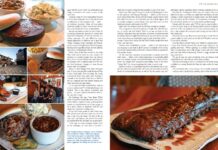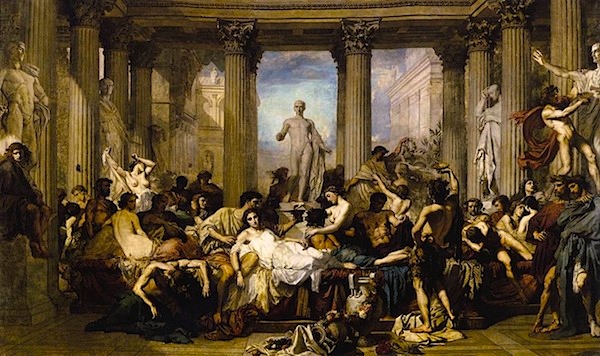The Winter 2023 issue of Food & Dining Magazine is now available in all the familiar places: Louisville area eateries and food shops, newsstands and online. Click here to check it out.
For the record, the winter solstice date for 2023 is Thursday, December 21 (10:27 p.m., Eastern Time).
The shortest day of the year typically falls on the winter solstice…the winter solstice is the beginning of astronomical winter. It is caused by the Earth’s tilted axis so that half of Earth is pointed away from the sun and the other half is pointed towards it.
Speaking as one who does not adhere to religious belief in any “organized” fashion, the winter solstice remains a source of fascination with respect to its impact on human culture.
The celebration of the winter solstice is an ancient tradition that dates back over 4,000 years and has served as a basis for our current holiday celebrations, such as Christmas and Hanukkah. These celebrations centre around ceremonies that include food, sharing abundance, and sending positive messages about health for the colder months to come.
The preceding paragraph introduces an informative essay by Dani Renouf, writing from the Kidney Community Kitchen in Canada: “No matter where you are and how you celebrate, one theme that remains the same through time is gratitude for the food and meals we share.”
Winter Solstice Celebrations: Bringing Ancient Food Traditions Into Our Modern Day
Saturnalia, the ancient Roman festival, is the most likely to be linked to our modern Christmas celebrations. This festival, marking winter solstice, focuses on the planting season. It includes a variety of foods and courses: grape juice cake as an appetizer, a honey wine made with several plants and spices (Mulsum), chicken with hazelnuts and squash as the main course, and a peppered honey cake with hazelnuts for dessert. The similarities between foods and the table settings for Saturnalia indicate that it inspired some of our festive traditions today, like including poultry in holiday meals. Try our Cranberry Margarita, Roast Turkey and Apple Cranberry Cake for a traditional Canadian Christmas meal.
I’ve chosen to highlight Saturnalia because, for many years during my previous career as a pub owner in New Albany, one of the year’s holiday highlights was our Saturnalia “seasonal” beer promotion. I’d explain it like this:
Many of our contemporary winter holiday traditions derive from Saturnalia’s pagan roots, including the hanging of wreaths and garlands, donations to the needy, prayers for peace, time off work to be enjoyed with family, and of course eating, drinking and merriment.
For a decade or so from 2004, Saturnalia was calibrated at the NABC Public House to launch the day after Thanksgiving (Plaid Friday in my world, although if one must reference “Black Friday,” so be it), and to run through Christmas, usually into January. There’d always be a special observance for the winter solstice itself.
We’d stockpile kegs of beers like Sierra Nevada Celebration Ale, Anchor Christmas Ale, St. Bernardus Christmas, and numerous others from America and the world. These would be tapped, one after another, until the stock was depleted. Any suitably festive beer, whether dubbed as a holiday seasonal or not, was fair game for consumption. They weren’t necessarily dark, strong or spiced, though many were.
Saturnalia (the beer fest) had relevance and resonance. People return home for the holidaze, and to me it always seemed that winter seasonal beers provided the most suitable accompaniment to the joys of reconnecting, sharing war stories, and remembering those who no longer are here – the folks I’m very thankful to have known while they were here on earth, walking among us.
If you’re curious about the origins of Saturnalia, an article in 1843 Magazine (from The Economist) takes us to ancient Rome: Why Christmas can never be cancelled; Boozing away the winter blues is a long-held right.
It was only some 350 years after Jesus was born that newly Christian Rome put an end to centuries of squabbling and settled on December 25th as the date of the virgin birth (a few holdouts in the Orthodox church still prefer the January celebration).
The end of December was already Roman party season. Rome was awash with drunken feasting during Saturnalia, the most debauched carnival in the calendar (and precursor to the modern Christmas party), which the Emperor Augustus limited to three days, and Caligula extended to five. During this period gambling was allowed in public and people swapped boring white togas for colourful robes. Roman life, normally so hierarchical, was turned on its head: slaves were served wine by their masters, cross-dressing was encouraged (the pantomime dame has ancient roots), and an ordinary man was elected King of the Saturnalia with the power to pass any “law” he fancied, so long as it was suitably hilarious.






















